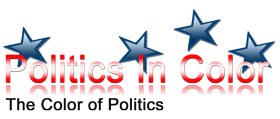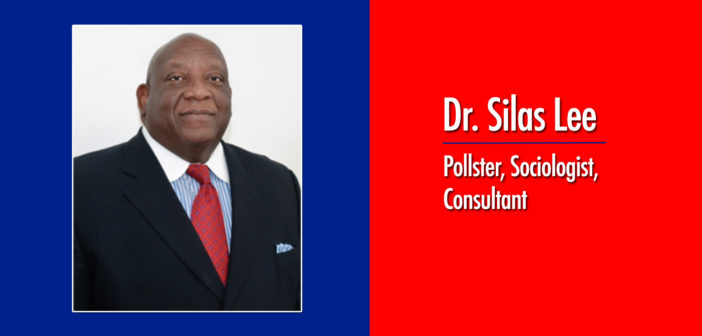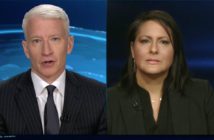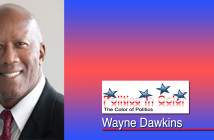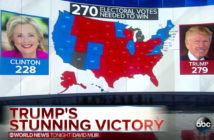By Dr. Silas Lee
Copyright © 2016
The 2016 presidential election once again confirmed that in life, as in politics, expect the unexpected and never 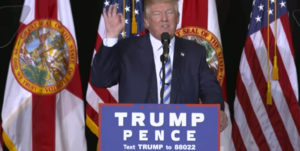 underestimate your opposition. Jeb Bush was the anticipated Republican nominee and Donald Trump was expected to implode during the primaries. Instead, Trump flattened seventeen opponents on his march to the nomination. On the Democratic side, Hillary Clinton emerged with the nomination after a bruising battle with Bernie Sanders. With Trump and Clinton as the standard bearers for their respective parties, conventional wisdom was destroyed by the following unexpected realities that I consider overlooked during the campaign in this vignette.
underestimate your opposition. Jeb Bush was the anticipated Republican nominee and Donald Trump was expected to implode during the primaries. Instead, Trump flattened seventeen opponents on his march to the nomination. On the Democratic side, Hillary Clinton emerged with the nomination after a bruising battle with Bernie Sanders. With Trump and Clinton as the standard bearers for their respective parties, conventional wisdom was destroyed by the following unexpected realities that I consider overlooked during the campaign in this vignette.
- Message Translation and Constipation – Traditionally, presidential elections focus on the issues of the economy and domestic security, and this election was not any different. Former President Bill Clinton famously coined the term, “I feel your pain,” to solidify his credentials with working class voters, an attribute that eluded Hillary Clinton. Enter Donald Trump, the reality show star who raged against the Washington establishment and presented his candidacy as fixer to the woes of the working class voters.
Hillary Clinton faced a dilemma: she was respected for her intellectual and policy acumen, but she shared equally high unfavorable ratings with Donald Trump, and the ongoing email controversy proved to be a consistent distraction. Recognizing this challenge, her campaign decided to focus on portraying Trump as highly unqualified in experience and temperament to be elected president. Whereas, Trump repeatedly enunciated “I will bring jobs and manufacturing back to America” without offering specifics, Clinton targeted Trump’s personal and professional vulnerabilities, but did not effectively articulate her economic vision and passion for the plight of working class voters. In every focus group I conducted with millennials, African Americans and working class voters, a majority of the participants expressed a lack of awareness of Hillary Clinton’s economic agenda and questioned how it would improve their economic status and stability. Essentially, the Clinton campaign was crippled by message constipation, she possessed detailed policy solutions on all the issues, but could not effectively translate them to simple bumper sticker themes that articulated the emotional anxiety and sense of hopelessness expressed by voters.
2. The Rage Election — Suffice to say that with polls consistently showing 70% of voters saying that the nation is headed in the wrong direction, there was an insatiable appetite for change, and Donald Trump fertilized their thirst for a new direction in the country.
From the beginning, Trump became the voice of rage for an economically fragile electorate that wanted change, now. Relying on his reality show and real estate developer personas to propel his campaign, Trump was successful in deflecting his faults and characterizing Clinton as the out of touch candidate who is wrong for America. His rhetoric against the political establishment and political correctness become the emotional accelerant that jettisoned infrequent Republican voters to the polls for him.
Trump’s campaign events were a spiritual transference of his energy and message that baptized his followers in his doctrine of American exceptionalism. From his Twitter rants, to lackluster debate performances and the infamous Access Hollywood groping tape, transgressions that would have decimated other campaigns, renewed the intensity of support among Trump supporters and inflated a false confidence in the Clinton campaign.
- Coalitions Are Not Transferable — The lesson learned from this simple, the successful strategy of one candidate will not work for another. From the beginning of Clinton’s campaign, there was an over-reliance and dependency on reviving the Obama coalition of young voters, racial minorities, labor, and middle and upper income white voters as their path to victory. What they failed to realize was that the Obama coalition was intimately tied to the personality of President Obama and the political climate in 2008.
Instead, Donald Trump created his own coalition of working class, college and non-college educated, urban, suburban and rural voters. Traditionally reliable Democratic states such as Ohio, Pennsylvania and Michigan deviated from supporting the Democrat for president and embraced the candidacy of Trump, an expression of frustration with the status quo and a desire for change.
- Race, Gender, and Social Change — Finally, any analysis of the presidential campaign would be incomplete without discussing the role of race, gender and social change. Aside from his business pedigree, Trump catapulted his name recognition by becoming the leading promoter of the Birther movement questioning the legitimacy of President Obama’s qualifications to be president. For African Americans, this remains an indelible mark of racism on Trump that many strategists assumed would automatically ignite turnout in states previously won by President Obama. To the bewilderment of Clinton, the reversed occurred. African American turnout did not reach 2008 levels, white turnout far exceeded projections in battleground states supporting Trump, and Hillary Clinton did not attract the solid majority of the women’s vote many expected.
As America becomes more racially diverse with an emerging majority-minority electorate, Trump’s theme and language of “Make America Great Again” was interpreted as make America less tolerant and respectful of the diversity this nation is experiencing. Scapegoating, stereotyping and economic insecurity converted 700 counties that supported President Obama to Trump supporters. Additional spice was added to this toxic stew by creating ideological distinctions by race on issues such as immigration, poverty, and crime, allowing Trump to attract the support of extremists such as the KKK and ultra conservative groups with a history of advocating nativism, racism and discrimination. After eight years of an African American man representing the most powerful nation in the world, the possibility of a woman succeeding him was not universally embraced by some.
To be honest, America still has a problem accepting women who attempt to ascend to positions of power. Regardless of the equal protection laws and pronouncements about equality, America remains a male-dominated, male-centered society which is still hesitant to allow women access to the full rein of this nation’s political power. Throughout the campaign, we observed how ingrained masculinity and power are culturally baked into this nation’s psyche. Although Trump was dismissive of his opponents in the Republican primary, he repeatedly used descriptors marginalizing Clinton’s gender by questioning her stamina, appearance (she does not look presidential), health and intelligence. Yes, the candidacy of Hillary Clinton put 62 million cracks in the glass ceiling for the presidency, more than all the women candidates who ran before her, yet, it remains unshattered.
Finally, as a pollster and sociologist, I recognize that democracy is a fragile experiment that often produces unexpected results. An early autopsy of the results reveals that fear of those who are different by race, religion, culture and gender remain potent propellants that are manipulatable and exploitable given the right circumstances and personality.
———————————————————————————————————————-
Bio
Dr. Silas H. Lee, III has served as a pollster and strategist for numerous corporate, non-profit, public sector, political, and legal clients over the last twenty-seven years. His company, Dr. Silas Lee and Associates, specializes in public opinion research and strategy development and has worked on behalf of clients including Columbia University in New York City, National Urban League, NAACP, Nike Shoes/Michael Jordan Fundamentals, Gaming in the Public Interest of South Africa, Harrah’s and Bally’s Casinos, and the Institute for International Affairs in Haiti, and the Governor’s Highway Safety Office of Tennessee. Dr. Lee has also served as one of the pollsters for several presidential campaigns, including Clinton-Gore, Gore-Lieberman, Kerry-Edwards, Hillary Clinton – 2008, Occupy the Vote (2012 presidential election), and numerous other elected officials, foundations and corporations.
He is also a court certified specialist in public opinion research assisting attorneys in jury selection and defining the social and cultural perspectives of potential jurors in criminal and multi-million dollar civil cases. Dr. Lee is also an assistant sociology professor at Xavier University of Louisiana and the Ernest N. Morial Endowed Professor of Public Policy.
Contact information
Email: drleeinfo@gmail.com
Web site: drleeinfo.com
Cell: 202-251-7827
